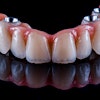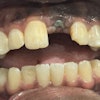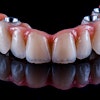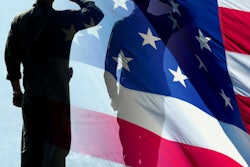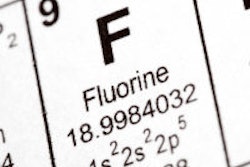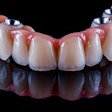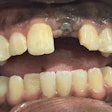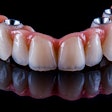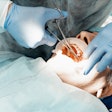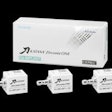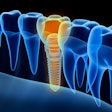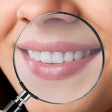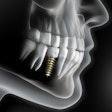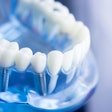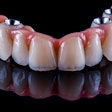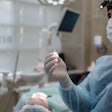
Recent news about the care of U.S. veterans has revealed long-term institutional issues. For the more than 40,000 wounded veterans returning from Afghanistan and Iraq, the problems they face involve more than just readjusting to home life. And while all veterans deserve the best care, oral health issues in these returning warriors are sometimes neglected.
Rebuilding America's Warriors (RAW), an organization based in California but dedicated to nationwide treatment, is helping returning U.S. veterans rebuild their oral health and is dedicated to providing free reconstructive surgery to recently wounded and disfigured active service members and veterans.
RAW was founded by a nurse, Maggie Lockridge, RN, with a background in plastic surgery, and Norman Leaf, MD, is the medical director. The original mission was to help returning veterans with disfiguring soft-tissue wounds. However, RAW saw many veterans who were deployed in Iraq or Afghanistan returning with an oral health condition that was causing a slow but total decay of all their teeth. Lockridge and her organization realized they needed more expertise and began reaching out to dentists and dental organizations.
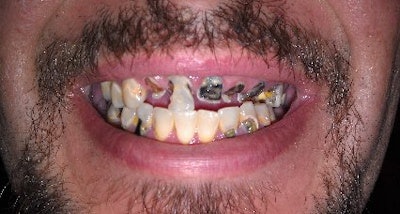 Before he was seen by a RAW dentist, this Iraqi vet's mouth showed signs of deterioration. Image courtesy of RAW.
Before he was seen by a RAW dentist, this Iraqi vet's mouth showed signs of deterioration. Image courtesy of RAW."Our veterans eventually won't smile due to their brown, broken teeth, and they grow a beard to hide their mouth," Lockridge told DrBicuspid.com. "These veterans are in pain and so won't eat, can't chew, lose weight, relationships suffer, and jobs are not happening. This is a national problem."
According to figures provided by RAW, the nonprofit foundation works with more than 300 surgeons but only 45 dentists in 46 states, and provides reconstructive surgery to wounded and disfigured active duty warriors and veterans of all wars post 2001.
“These veterans are in pain and so won't eat, can't chew, lose weight, relationships suffer, and jobs are not happening. This is a national problem.”
RAW also works with manufacturers to help these veterans. "In most cases, [the veterans] require full extraction and dentures," Lockridge said. "RAW is able to have eight implants donated by major manufacturers, so dentures can be anchored. Also, Beverly Hills Dental Lab donates all of the lab work." Other manufacturers the organization works with include Medicis, Advanced Bio-Technologies, Alpine Pharmaceuticals, Medifast, and LifeCell.
These veterans have oral health problems that run deep, according to Dr. David Wilhite of Plano, TX, one of the dentists who participates in RAW. Dr. Wilhite has worked with 24 veterans and provided more than $200,000 in services.
These veterans' oral health and teeth are in pretty bad condition, Dr. Wilhite recently told WFAA-TV. They have extensive decay and periodontal disease, and often need root canals, crowns, and implants. Some have required restorations on every tooth, he noted.
Veterans receive no dental care from the Veterans Affairs unless they are 100% disabled, according to the U.S. Department of Veterans Affairs (VA) website. Only those veterans who fall under the following three categories are eligible for "any needed dental care":
- Veteran is a former prisoner of war.
- Veteran has a service-connected compensable dental disability or condition.
- Veteran has service-connected disabilities rated 100% disabling, or are unemployable and paid at the 100% rate due to service-connected conditions.
The VA is making available a comprehensive national VA Dental Insurance Program to give enrolled veterans and certain beneficiaries the opportunity to purchase dental insurance through Delta Dental and MetLife at a reduced cost. Participation does not affect veterans' current eligibility for VA dental services and treatment.
Lockridge emphasized that RAW would welcome more dentists participating. A whole team is usually necessary to provide the treatment, she noted.
"If a dentist volunteers, he or she will be asked to provide the team necessary to provide treatment: endodontist, oral surgeon, and general dentist," she said.
"Essentially, there is no cost to the dentist, save some medical supplies. Even antibiotics are reimbursed," Lockridge added. "We don't expect our dentists to be out-of-pocket when they are helping our warriors."
She does go out of her way to stress, however, that some veterans may have a complicated treatment plan that takes more than one visit.
"Some veterans have a full mouth of decay and may need full extractions, denture fittings, and impressions," she said. "We've had some veterans who need a bone graft if they have been shot in the face."
For more information, or for those who want to get involved or donate, visit the RAW website.
